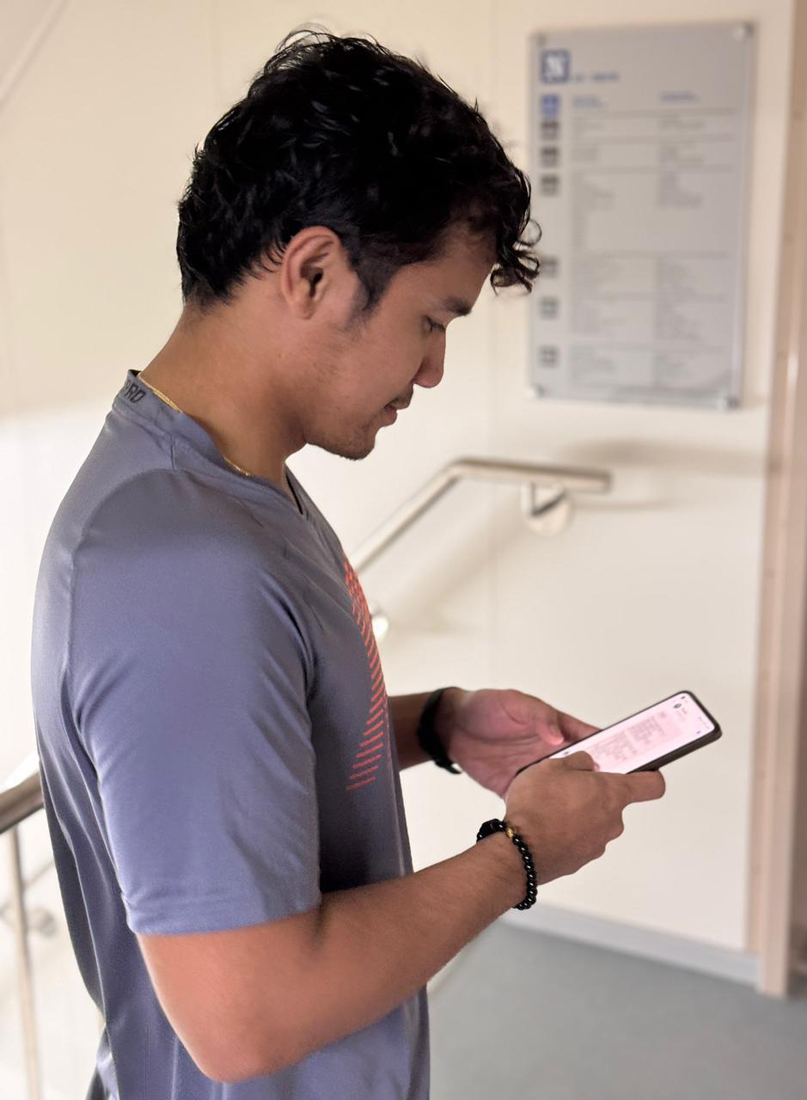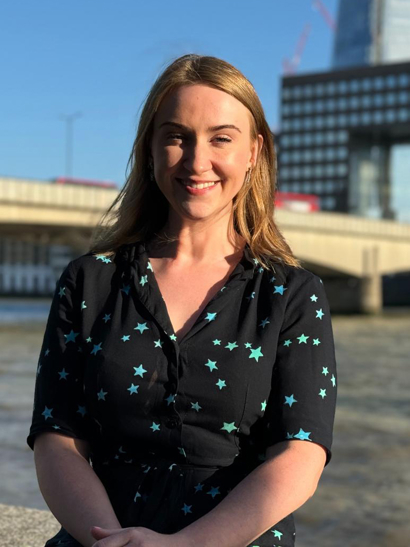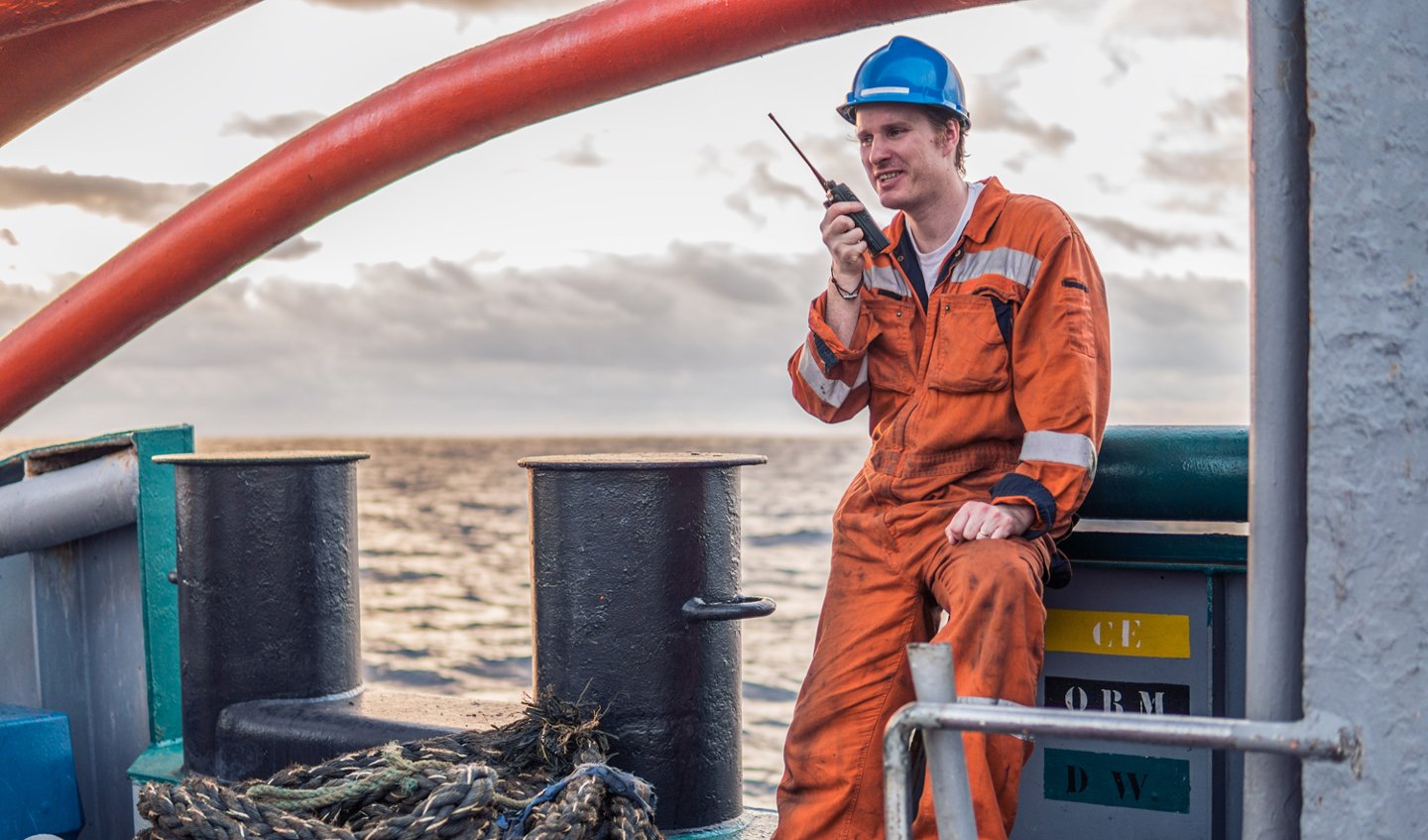The Captain’s Table annual competition for maritime start-ups, with sponsors including LR, is a healthy disruptor of long-established marine systems. PsyFyi’s innovative SeaQ system is no exception. As winner of the 2024 competition in Hong Kong, the new system focuses on seafarers’ welfare and is catching on fast.
CEO Claire Georgeson sets the scene. Although ships undergo inspections and surveys of many types on a regular basis, few address the human element in shipping. It was this data gathering and reporting gap that drove her to set up the UK-based company, PsyFyi, and establish its SeaQ system.
With an Masters of Business Administration from Bayes (formerly Cass) Business School and commercial experience at Maersk, Navigator Gas, Eletson, and Intertanko, Georgeson is fascinated by the expectations of Gen Z men and women – the source of future seagoing personnel.
Throughout her time working at maritime organisations, she observed the often-fractured relationships between shore staff and seafarers, and how many routine inspections focus on assets, rather than personnel. Her career to date underpins her pioneering approach to seafarers’ welfare the implications for ship safety and efficiency.
Real-life data
In setting up SeaQ, she sought to answer this question: why are ships’ crews, who are right at the sharp end of the business, not more involved in feedback that could improve ship efficiency and safety? Since most accidents are caused by human error, surely seafarers’ welfare should be a top priority, she reasons.
The SeaQ system is designed to give shipowners and operators an accurate picture of life onboard from a seafarers’ perspective, with real-time feedback onboard, both positive and negative. The innovative setup has already caught the attention of major shipping groups. Clients so far include commercial owners and operators like NYK, as well as industry associations.
Personal information is collected for each person on board – age, rank, gender, nationality. Then data harvested daily from answers to questions posed to seafarers.
Questions vary widely but could follow this example: How satisfied are you that you are treated as a competent seafarer? What makes you feel as though you are not being treated as a competent seafarer? Is it the organisation? Something on the ship?
There could be questions to explore bullying and training. And then, critically: What do you think could be done to improve this?
Shipboard personnel do not respond by filling in their names on company forms, but by using social media platforms that are part of everyday life. Scanning a QR code identifies the ship, and crew answer daily questions using WhatsApp, Facebook Messenger, or Telegram.
SeaQ processes anonymised responses and passes them back to clients in one of two ways. Each company has an online dashboard with 24/7 access but, she says, far more popular are the face-to-face meetings that PsyFyi undertakes based on the feedback from sea.
Crew retention, she says, is right at the front of shipowners’s minds and today the issue has never been more pressing. SeaQ is already showing how it makes a difference.


Behind the times
“Shipping is facing a personnel crisis. Disillusioned seafarers return to shore and recruitment becomes ever-more challenging,” Georgeson says. “So welfare and the quality of life on board are critical factors and owners need proactive strategies.”
The backdrop is complicated by rising living standards in the countries that recently supplied seagoing labour, she explains, such as the Philippines, India, and Indonesia.
“Going to sea is becoming less and less attractive. We now see shifts in marine labour as dry bulk staff are poached by tanker and gas ship operators, and new sources of labour – from Africa, for example – are being developed.
“Yet, although most companies hold vast amounts of data about ships and their performance as assets, we know very little about the people that run them,” she says.
There has been positive feedback from clients. “We are told our data is helpful strategically, commercially, and operationally because most accidents are down to the human element. So it’s about risk reduction, enhanced safety, and positive results for owners and operators,” she says.
Unexpected outcomes
The SeaQ setup, Georgeson says, has revealed operational factors that may never have come to light until now.
"We know from generalised industry sentiment that that crews on LNG tankers operating out of the Arabian Gulf in the summer really suffer. But owners have never invested in understanding why, and the impact of this.
"What we found was the reality of working in +45 degrees of heat affects everything from your motivation to your ability to think clearly and safety. In most countries work stops when temperatures exceed 40 degrees. They don’t stop on a vessel in the middle of cargo operations. Sisterships offer another example.
“We sometimes have owners with a couple or more of sister vessels. There is often one star performer and when that’s the case we try to replicate that welfare system on board the sisterships.
“There’s also often one ship that consistently underperforms and the owner invests more money in that ship to improve it. But that could be a pointless exercise. It could be nothing to do with the ship itself, its systems or maintenance. In fact, it is more likely to be a personnel-related issue – a bossy second mate or a lazy third engineer down below.”
A third example relates to personal interactions, including identifying inequalities or analysing hierarchies onboard. Georgeson highlighted that a female cadet, for example, could safely and anonymously alert the shipping company’s management to the dynamics onboard though the daily questions, whilst not providing specific details. Georgeson can see the impact that SeaQ is having on women at sea. “We are proud of the female part of our database. In fact, I think it’s true that we have one of the world’s largest datasets of female seafarers.”

Positive feedback
Georgeson is keen to highlight that the system operates on a positive feedback loop. “We like to operate a circular process. Seagoing staff answer our questions, we process them, study them, and, if necessary, make observations and perhaps suggestion to our clients.
“We can then say to our seafarers: ‘This is how you’ve helped us. These are the things we are planning to do. And please keep us posted on progress,’” she says.
Seafarers today face unprecedented work pressures with 24/7 shifts, long tours of duty and frequently poor communication links with family and friends. With initiatives like SeaQ we can begin to quantify how crewing is changing and what the maritime industry can do to differently to ensure a healthy and happy workforce for the future.

